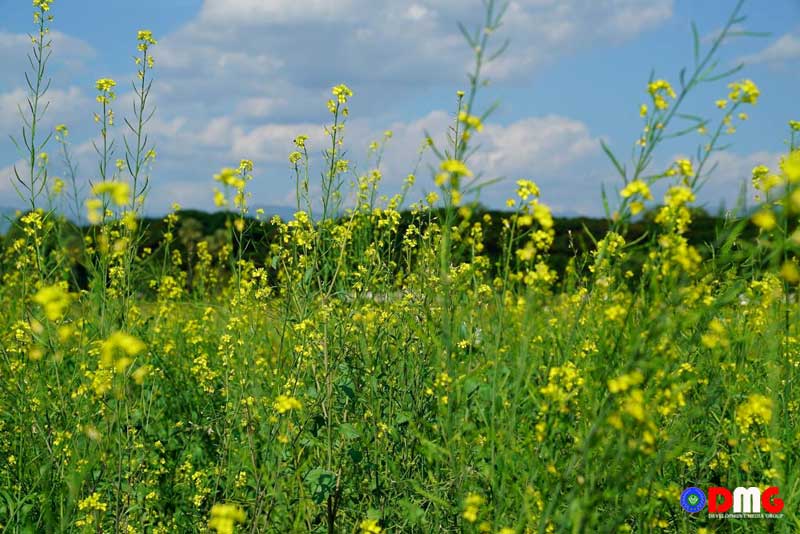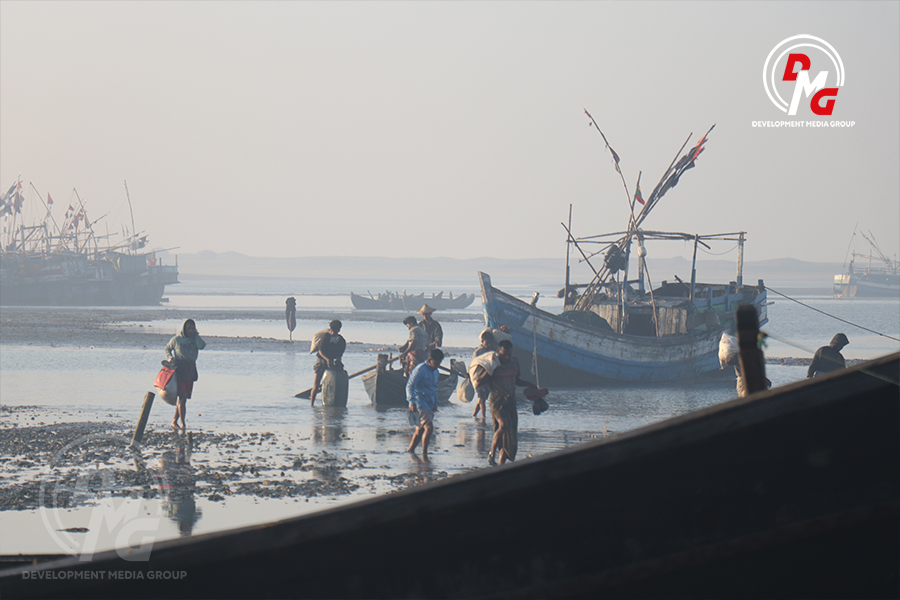- Weekly Highlights from Arakan State (Jan 26 to Feb 1, 2026)
- Arakanese youth stabbed in Mae Sot urgently needs financial aid for medical treatment
- Five years on Myanmar faces uncertain military and political outlook after coup
- Myanmar Navy detains Pauktaw fishermen and demands ransom
- Junta Airstrikes on Arakan and the Consequences for Independent Media
Arakanese farmers call for government technical, financial assistance on cultivation of oil crops
Agriculturalists are saying there is a need to grow more oil crops as Arakan State relies on mainland Myanmar for self-sufficiency in edible oil due to the weak agricultural legacy of recent decades.
06 Jan 2023

DMG Newsroom
6 January 2023, Sittwe
Agriculturalists are saying there is a need to grow more oil crops as Arakan State relies on mainland Myanmar for self-sufficiency in edible oil due to the weak agricultural legacy of recent decades.
Last year, there were 98,156 acres of oil crops in Arakan State, and this year, there are 110,853 acres of oil crops, according to data from the Arakan State Agriculture Department.
Since Arakan State still relies on mainland Myanmar for edible oil every year, it is necessary to grow oil crops to ensure self-sufficiency in domestic consumption, said U Oo Tun Myint, director of the Arakan State Agriculture Department.
“The production of oil crops in Arakan State is very low, so the consumption has never been enough,” he told DMG. “Edible oil production in Arakan State is only sufficient for 44% of the state’s population. Arakan State still needs to grow more oil crops every year.”
On the other hand, oil crops cultivated in Arakan State are being exported to mainland Myanmar, which is affecting the business models of locally grown edible oil, he said.
Though oil crops are grown in townships across Arakan State, peanuts are grown mainly in Manaung, Thandwe, Taungup, Minbya, Buthidaung, Ramree, Thandwe and Gwa townships, and sunflower is grown mainly in Taungup and Gwa as a cold season crop.
Local farmers say that they only grow oil crops on a manageable scale, and that there is a need for technical and financial assistance if commercial cultivation acreage is to be expanded.
“If you can spend more money, you can grow more oil crops. As commodity prices went up, the acreage of oil crop cultivation decreased slightly because we could not use a lot of soil fertilisers. It is also necessary to get a good price when the crop is harvested,” said U Maung Shwe, a mustard farmer in Purein Village in Mrauk-U Township.
Although there are more than 540,000 acres under winter crop cultivation in Arakan State, farmers say that agricultural activities are weak due to conditions such as market guarantee, financial difficulties and the increase in fertiliser prices.
The Arakan Farmers’ Union has urged the government to provide support for the expansion of agriculture.
“If farmers get financial support from the government, they will be able to grow many other winter crops in addition to edible oil. Arakan State no longer needs to rely on mainland Myanmar for edible oil,” said an official from the Arakan Farmers’ Union.















.jpg)

